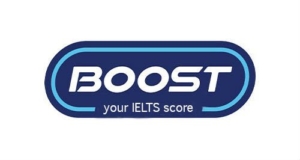Describe a talk you gave to a group of people
You should say for Describe a talk you gave to a group of people
Who you gave the talk to
What the talk was about
Why you gave the talk
And explain how you felt about the talk

Describe a talk you gave to a group of people
Sample answer for describe a talk you gave to a group of people
Well, I’d like to talk about an experience I had recently. I had the opportunity to give a talk to my fellow classmates who were also learning English, and the topic I chose to speak about was the Renaissance.
I chose to give this talk because we were participating in a speaking contest where each of us had to present on a topic of our choice. The Renaissance has always fascinated me due to its profound impact on art, culture, and human progress. It was a period of remarkable innovation, spanning from the 14th to the 17th century, when artists, thinkers, and scientists reshaped the world.
Giving this talk was both exciting and challenging. On one hand, I was enthusiastic about sharing my knowledge and passion for the Renaissance with my classmates. I wanted to convey how this period reshaped the world and laid the foundation for many aspects of our modern society. On the other hand, speaking about such a complex historical period in English, a language I’m still learning, was quite challenging. I needed to ensure that my pronunciation, grammar, and vocabulary were accurate and clear.
Overall, the experience was incredibly rewarding. It allowed me to deepen my understanding of the Renaissance while also improving my English-speaking skills. It was an opportunity to engage with my classmates in meaningful discussions and share knowledge, all of which contributed to our language learning journey. So, giving that talk on the Renaissance was not only a learning experience but also a chance to connect with my peers and explore a topic I’m truly passionate about.”
Vocabulary for describe a talk you gave to a group of people
- Fascinated – Cuốn hút – Extremely interested or attracted.
- Profound – Sâu sắc – Having deep meaning or significance.
- Innovation – Đổi mới – The introduction of something new, such as a method, idea, or product.
- Reshaped – Tạo lại hình dáng – Changed the form or structure of something.
- Enthusiastic – Hứng thú – Showing great excitement and interest.
- Passion – Đam mê – A strong and barely controllable emotion.
- Complex – Phức tạp – Consisting of many different and connected parts.
- Pronunciation – Phát âm – The way in which a word or a language is spoken.
- Grammar – Ngữ pháp – The rules and structure of a language.
- Vocabulary – Từ vựng – A set of words known and used by a person in a particular language.
- Accurate – Chính xác – Correct and without mistakes.
- Meaningful – Có ý nghĩa – Having importance or purpose.
- Engage – Tham gia – To participate or become involved in something.
- Peer – Bạn đồng trang lứa – A person who is equal to another in abilities, qualifications, age, background, or social status.
- Explore – Khám phá – To investigate, study, or analyze something in detail.
Explore more: ielts speaking part 2
Part 3 – Describe a talk you gave to a group of people

Describe a talk you gave to a group of people
What benefits does the Internet bring to communication?
The Internet has brought about several significant benefits to communication. Firstly, it has eliminated geographical barriers, allowing people to communicate with anyone, anywhere in the world, instantly. For instance, social media platforms like Facebook and Twitter enable individuals to connect with friends and family worldwide. Secondly, it has facilitated the exchange of information and knowledge on a vast scale. Online forums, blogs, and educational websites provide a wealth of information, enabling individuals to learn, share, and stay informed about various topics. Additionally, the Internet has made communication more convenient, with features like email and messaging apps allowing for quick and efficient exchanges. Lastly, it has revolutionized business communication, enabling companies to reach a global audience, collaborate remotely, and conduct e-commerce transactions with ease.
- Eliminated – Loại bỏ – To completely remove or get rid of something.
- Geographical barriers – Rào cản địa lý – Obstacles related to physical location or distance.
- Facilitated – Tạo điều kiện – To make a process or action easier or more convenient.
- Exchange of information – Trao đổi thông tin – The act of giving, receiving, or sharing information between individuals or groups.
- Wealth of information – Kho thông tin phong phú – A large and valuable amount of information available.
- Convenient – Tiện lợi – Making life easier or more comfortable.
- Quick and efficient exchanges – Trao đổi nhanh và hiệu quả – Swift and effective interactions or conversations.
- Revolutionized – Cách mạng hóa – To completely change a system, method, or area of business, often by using new methods or tools.
- Global audience – Khán giả toàn cầu – The worldwide population that a message or content can reach.
- Collaborate remotely – Hợp tác từ xa – Working together on a project or task without being physically present in the same location.
- E-commerce transactions – Giao dịch thương mại điện tử – Buying and selling goods or services online, typically through websites or apps.
Which one is better, being a communicator or a listener?
Both being a communicator and a listener have their merits, and the choice depends on the context and individual preferences. Being a communicator allows one to express ideas, convey information, and influence others effectively. For instance, in a leadership role, effective communication is vital for guiding a team. On the other hand, being a good listener is equally important as it fosters understanding, empathy, and strong interpersonal relationships. For example, in a counseling session, a skilled listener can provide support and guidance to those seeking help. Ultimately, striking a balance between effective communication and active listening is often the key to successful interactions and relationships.
- Merits – Ưu điểm – The quality of being good and deserving praise or reward.
- Convey – Truyền đạt – To communicate or make known a message, feeling, or idea.
- Influence – Ảnh hưởng – The capacity to have an effect on the character, development, or behavior of someone or something.
- Interpersonal relationships – Mối quan hệ giữa con người – The connections and interactions between individuals.
- Counseling session – Phiên tư vấn – A meeting where a professional provides guidance, advice, or therapy to someone seeking assistance.
- Effective communication – Giao tiếp hiệu quả – The successful exchange of information and ideas in a clear and understandable manner.
- Active listening – Lắng nghe tích cực – The process of fully focusing, understanding, and responding to what someone else is saying.
What qualities does a person need to have to be a good communicator?
A good communicator possesses several essential qualities. Firstly, they must have clarity in their speech, ensuring that their message is easily understood by the audience. For instance, a teacher who explains complex concepts in a simple and clear manner is an effective communicator. Secondly, empathy is crucial, as it enables them to understand the perspectives and feelings of others, fostering better interpersonal connections. An empathetic manager can address the concerns of their team members with sensitivity. Thirdly, active listening skills are vital, allowing them to engage in meaningful conversations and respond thoughtfully. A therapist who listens attentively to their patients demonstrates this quality.
- Clarity – Sự rõ ràng – The quality of being clear and easy to understand.
- Empathy – Sự đồng cảm – The ability to understand and share the feelings of another.
- Perspectives – Quan điểm – A particular attitude or way of viewing something.
- Interpersonal connections – Mối quan hệ giữa con người – The relationships and interactions between individuals.
- Active listening – Lắng nghe tích cực – The process of fully focusing, understanding, and responding to what someone else is saying.
- Adaptability – Sự thích nghi – The ability to adjust to new conditions or changes.
- Negotiator – Người đàm phán – A person who engages in discussions to reach agreements or resolve conflicts.
What qualities do people need to speak in public?
To speak effectively in public, individuals require confidence to deliver their message assertively, clarity to ensure their words are understood, and the ability to engage with the audience to maintain interest. Furthermore, good public speakers often possess strong organizational skills to structure their speech coherently. For example, Michelle Obama’s public addresses showcase her eloquence and ability to connect with her audience through personal anecdotes and clear, powerful messaging.
- Effectively (Một cách hiệu quả) – In a way that is successful and achieves what you want.
- Confidence (Sự tự tin) – The feeling or belief that one can rely on someone or something; firm trust.
- Assertively (Một cách quả quyết) – In a manner that expresses confidence and firmness.
- Clarity (Sự rõ ràng) – The quality of being coherent and intelligible.
- Engage (Tham gia) – Occupy, attract, or involve (someone’s interest or attention).
- Maintain (Duy trì) – Cause or enable a condition or state of affairs to continue.
- Organizational skills (Kỹ năng tổ chức) – The ability to use your time, energy, resources, etc. in an effective way so that you achieve the things you want to achieve.
- Coherently (Một cách mạch lạc) – In a logical and consistent way.
- Eloquence (Sự hùng biện) – Fluent or persuasive speaking or writing.
- Anecdotes (Giai thoại) – A short and amusing or interesting story about a real incident or person.
What kinds of people often give speeches?
In public life, it is common for politicians to give speeches as a way of connecting with their constituents and communicating policies. Similarly, business leaders often deliver speeches to share company achievements, vision, or strategy during corporate events. Inspirational speakers, who may come from various backgrounds, give motivational talks to empower and encourage people in different settings, such as educational institutions or conferences. Lastly, subject matter experts and academics frequently give speeches at seminars and symposiums to disseminate knowledge and research findings within their field of expertise.
How important is it to be a good listener when communicating?
Being a good listener is essential in communication as it enables one to grasp and process information accurately, leading to more meaningful interactions. It also shows respect for the speaker, building trust and a better rapport.For example, a salesperson who attentively listens to a customer explain their desire for an eco-friendly car can effectively recommend models that align with the customer’s values and priorities, thereby increasing the likelihood of a sale.
- Enables (Cho phép) – Gives someone the authority or means to do something.
- Grasp (Hiểu) – Seize and hold firmly; understand completely.
- Process (Xử lý) – A series of actions or steps taken in order to achieve a particular end.
- Respect (Tôn trọng) – A feeling of deep admiration for someone or something elicited by their abilities, qualities, or achievements.
- Rapport (Mối quan hệ tốt) – A close and harmonious relationship in which the people or groups concerned understand each other’s feelings or ideas and communicate well.
- Attentively (Một cách chú ý) – Paying close attention to something.
- Eco-friendly (Thân thiện với môi trường) – Not harmful to the environment.
- Recommend (Giới thiệu) – Put forward (someone or something) with approval as being suitable for a particular purpose or role.
- Align (Phù hợp) – Place or arrange (things) in a straight line.
- Priorities (Ưu tiên) – The fact or condition of being regarded or treated as more important.
- Likelihood (Khả năng) – The state or degree of being likely or probable.


